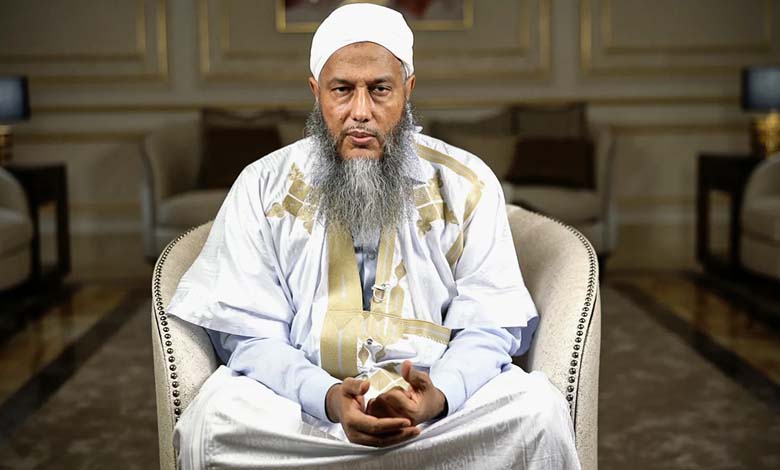The Ban on Eating Chicken and the Fatwa on Performing Hajj Without Authorization: What’s the Connection with the Muslim Brotherhood?

The controversial fatwas of Mauritanian scholar Muhammad Al Hassan Oueld Ad Dedou have stirred significant debate due to their sometimes peculiar nature and their consequences. The latest of these is his fatwa permitting Hajj without authorization, considering that the authorization is an innovation and not mentioned in the Quran, which has led to an increase in deaths among unauthorized pilgrims this year.
These controversial fatwas are seen by some observers as a result of Oueld Ad Dedou’s haste to appear in the media and exploit the media spotlight he enjoys to support the political orientations of the Muslim Brotherhood.
They believe that aligning with the Muslim Brotherhood and the intense effort to polish the image of its leaders, defend them, and present them to the public in service of regional agendas and interests has cost the scholar much of what others have gained by choosing to serve religion and the community outside of political orientations.
Among the strange fatwas issued by Oueld Ad Dedou is the prohibition of eating Egyptian chicken and the recommendation to consume Turkish chicken imported into Mauritania. This fatwa, issued in 2016 and 2019, deems Turkish chicken halal and produced by Muslim companies that give zakat, unlike chicken imported from Egypt, Europe, and the United States, which is alleged to be mixed with blood.
Many also criticize his fatwa allowing secret marriages, a social problem in Mauritania. While many hoped that a prominent scholar could persuade the community of the dangers of this phenomenon and work to address it, Oueld Ad Dedou declared that secret marriages are valid if they meet all legal conditions, and that public announcement of the marriage is a tradition and not an obligation, with the main requirement being its documentation with a judge.
Regarding communication via social networks, Oueld Ad Dedou stated that the content of conversations should remain within legal boundaries and that the appeal of the voice or image should not influence the exchanges.
On trade and buying between genders, he deemed it forbidden if a man buys from a woman due to her beauty or to converse with her, as it could create suspicion of pleasure.
Among Oueld Ad Dedou’s controversial fatwas is also the one allowing Hajj without authorization, which has resulted in many deaths among unauthorized pilgrims who suffered from heat and travel without food.
Statements by Oueld Ad Dedou that have sparked ridicule include the belief that leprosy is a devil’s bite, and that a man can marry a jinn, but a Muslim woman cannot marry a jinn. Ould Dedew has also retracted several of his fatwas, including those concerning slavery in Mauritania, the takfir of “IRA” leader Biram Ould Dahoud, who burned jurisprudential books on slavery, and the prohibition for the wealthy to give zakat to members of the Alawi tribe, considering them all as nobles.
It is noted that in 2003, Oueld Ad Dedou issued a fatwa on the obligation to vote for the most competent candidate, supporting the Muslim Brotherhood candidate Mohamed Khouna Ould Haidallah, despite having benefited a few months earlier from a presidential pardon from then-President Ould Taya.
Oueld Ad Dedou also escaped from the central prison in Nouakchott with leaders of the Islamic current who were then detained, taking advantage of the chaos that followed the attempted coup on June 8, 2003. He was accused of attempting to destabilize the country by forming a “secret Islamic front.”












